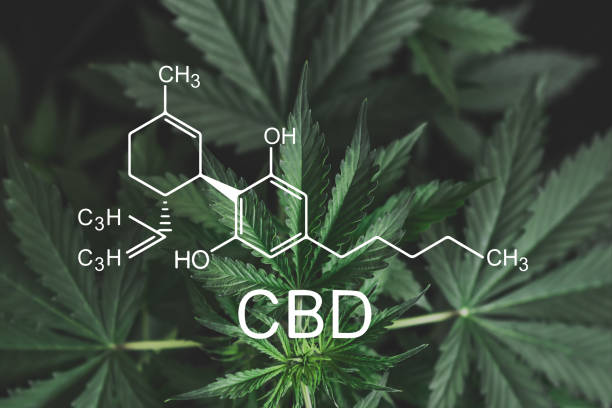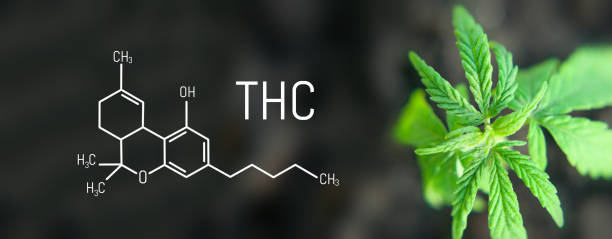

CBD and THC are two of the most well-known cannabinoids found in cannabis plants. Despite having many similarities, they serve diverse functions and have different impacts on the body. We are going to explore the distinctions between CBD and THC as well as their diverse applications in this post.
Hemp and marijuana plants contain the cannabinoid known as CBD, or cannabidiol. CBD is not psychoactive like THC, therefore it won’t make you feel high. In recent years, CBD has grown in popularity due to its possible health advantages, which include:
Reducing anxiety and depression
Relieving pain and inflammation
Improving sleep quality
Treating epilepsy and seizures
Reducing the symptoms of neurodegenerative diseases, such as Alzheimer’s and Parkinson’s

Typically, hemp plants are used to extract CBD, which is then utilized to make a range of goods, including oils, tinctures, capsules, and topicals. Additionally, it is present in various meals and drinks.
THC, or delta-9-tetrahydrocannabinol, is the cannabinoid responsible for the psychoactive effects of marijuana. When THC is consumed, it binds to cannabinoid receptors in the brain, which can result in feelings of euphoria, relaxation, and altered perception.

Reducing pain and inflammation
Stimulating appetite
Reducing nausea and vomiting
Improving sleep quality
Treating glaucoma
THC is typically found in marijuana plants and is used to create a variety of products, including dried flowers, oils, tinctures, edibles, and concentrates.
To better understand the differences between CBD and THC, let’s take a look at some key factors:
| Factor | CBD | THC |
| Psychoactive effects | Non-psychoactive | Psychoactive |
| Legal status | Legal in many countries | Illegal in many countries |
| Medical benefits | Reduces anxiety and depression | Reduces pain and inflammation |
As you can see from the chart above, THC and CBD have different effects on the body and are used for various things, despite the fact that some of their medicinal advantages are similar.
The legal status of CBD and THC is one of their main distinctions. THC is prohibited in many regions, however CBD is permitted in many nations. For instance, CBD generated from hemp is acceptable under federal law in the United States, but THC is only acceptable for medicinal use in some states and for recreational use in others.
Both THC and CBD have been shown to have potential medicinal advantages. THC has been demonstrated to be beneficial in lowering pain and inflammation, boosting hunger, reducing nausea and vomiting, and improving sleep quality, whilst CBD has been shown to be effective in treating anxiety, depression, pain, inflammation, and epilepsy.
When it comes to the effects of cannabis, THC is the star of the show. It’s the compound responsible for the infamous “high” that many associate with cannabis use. THC binds to the CB1 receptors in the brain, leading to altered perception, euphoria, and a general sense of relaxation. It’s like a wild rollercoaster ride for your senses!
But keep in mind that not all highs are made equal. THC’s effects might differ based on dose, strain, and individual tolerance. Too much THC can cause undesirable side effects such as anxiety, paranoia, and poor motor coordination. So, if you’re going to take the high road, start low and go slow!
CBD, on the other hand, is the cool and collected cousin of THC. Since it is not psychoactive, it does not result in the same “high” as THC. CBD interacts with the body’s endocannabinoid system, but because it doesn’t bind tightly to CB1 receptors in the brain, it has no euphoric or perceptual-altering effects.
Instead, CBD is well-known for its conceivable healing properties. According to research, CBD may have calming, anti-inflammatory, and analgesic effects. It functions as a cool pill that can assist you in finding balance, calm, and relaxation without the destabilizing impacts of THC. It’s ideal for people who wish to take advantage of cannabis’ potential advantages without becoming “high.”
This is when things really start to get interesting. Like yin and yang, CBD and THC are two sides of the same coin. Even while they each have unique impacts, they may also complement one another well.
This implies that THC can still have its medicinal effects while CBD helps to mitigate some of the negative effects of THC, such as drowsiness or anxiety. It resembles a flawless dance between two partners, with each contributing their special skills.
There is no one solution that works for everyone when comparing CBD vs. THC. Depending on personal preferences and individual characteristics, the effects of various substances might differ. For recreational purposes, some people might enjoy the euphoric effects of THC, whilst others could find the non-psychoactive benefits of CBD to be better suited to their health regimen. The key is to strike the ideal balance.
It’s also crucial to think about how legal CBD and THC are where you live. While CBD is legal in many places, THC is still classified as a controlled substance in some jurisdictions. Make sure to familiarize yourself with the laws and regulations in your area before indulging in CBD or THC.